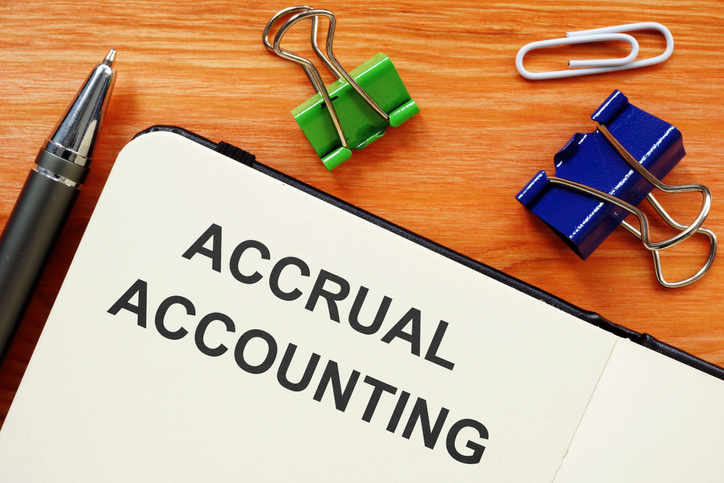
The Accruals Concept

It is important that a company’s position is represented faithfully in the published set of accounts.
There are two methods to recognising revenue and expenses:
- Cash accounting
- Accrual accounting
Cash accounting is a method which only recognises transactions when cash is paid or received, when the work or service is carried out. Cash does not necessarily relate to physical cash, but also electronic bank transfers and other methods where money changes hands.
However, cash is not always received or paid at the time at which goods or services are bought or incurred, hence in financial accounting and reporting it is beneficial to ensure that economic events are reflected at the appropriate date or period in time.
The accruals principle requires that expenses are matched with the revenue generated by them. Therefore, sometimes we must carry forward income or expenditure which is incurred now, but actually relates to events which will occur in the future (a prepayment), or by contrast any income or expenditure which will be received or paid in the future, but in fact relates to events occurring now.
Despite being a more complex method, accrual accounting gives a more accurate representation of a company’s activities and so is considered standard practice, other than for small companies and sole traders (with turnover of less than £150,000 per year).
Example 1 - Prepayment
Scenario:
A company with a financial year from 1st March 2019 to 29th February 2020 enters into a contract to pay rent for premises for their new head office on 1st of April 2019, and immediately begins to pay £30,000 rent quarterly in advance, on the 1st day of each quarter.
During the financial year, payments are made on 1st April 2019, 1st July 2019, 1st October 2019 and 1st January 2020.
- Under cash accounting:
All four of these payments take place in the financial year 2019-20 and are therefore recognised in full for the year, showing a rent expense in the financial statements of £120,000 (4 x £30,000).
- Under accrual accounting:
All four of the payments take place in the financial year, however the final payment is made on 1st January 2020, which covers the period from 1st January 2020 to 31st March 2020.
The final month covered by this quarter’s payment is part of the subsequent financial year, because the event of occupying the office space occurs in the financial year 2020-21.
Therefore, 1 month of the three which this payment relates to should not be shown as an expense in the statement of profit or loss, but in fact as a prepayment on the balance sheet.
The financial statements for the year ended 29th February 2020 will therefore show a rent expense of £110,000 ([£30,000 x 3] + [2/3 x £30,000]) in the statement of profit or loss, and a prepayment for the remaining £10,000 on the statement of financial position.
Subsequently in the following financial year, this prepayment will be released to the profit or loss by transferring the prepaid rent from the statement of financial position to the statement of profit or loss.

Example 2 - Accrual
Scenario:
The same company as above also began to carry out building works for a customer on 1st of January 2020. The contract specified that full payment of £100,000 would be received when the building work was complete.
The work is expected to take 4 months to complete, so the payment will be made on the 30th of April 2020.
- Under cash accounting:
The payment is to be made on the 30th of April 2020 which is in the financial year 2020-21. Therefore, no income shall be recognised for the period 2019-20.
- Under accrual accounting:
Despite the fact that the payment will be made in the following financial year, the contract period includes 2 months (1st January – 29th February 2020) of the financial year 2019-20.
Therefore the income should be apportioned so that 2 months of the 4 total months should be recognised in the financial statements for the year ended 29th of February 2020.
At 29th of February 2020, income of £50,000 should be recognised as income on the statement of profit or loss and accrued income on the statement of financial position.

Should you have any queries or questions in respect of the above, please reach out to your usual Arnold Hill & Co contact, call our mainline on 0207 306 9100 or email our general address – info@arnoldhill.co.uk
The information in this article is believed to be factually correct at the time of writing and publication, but is not intended to constitute advice. No liability is accepted for any loss howsoever arising as a result of the contents of this article. Specific advice should be sought before entering into, or refraining from entering into any transaction.

